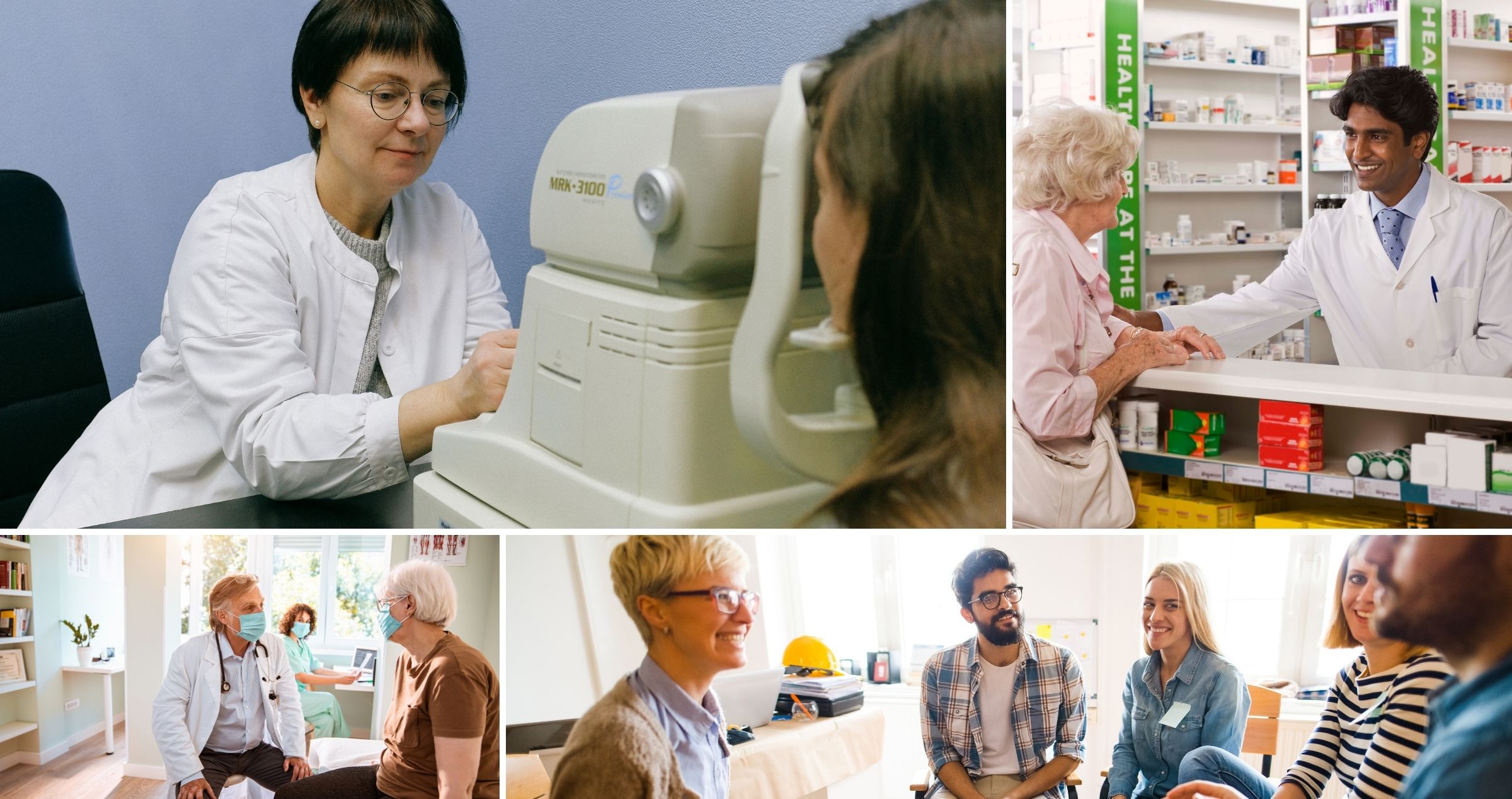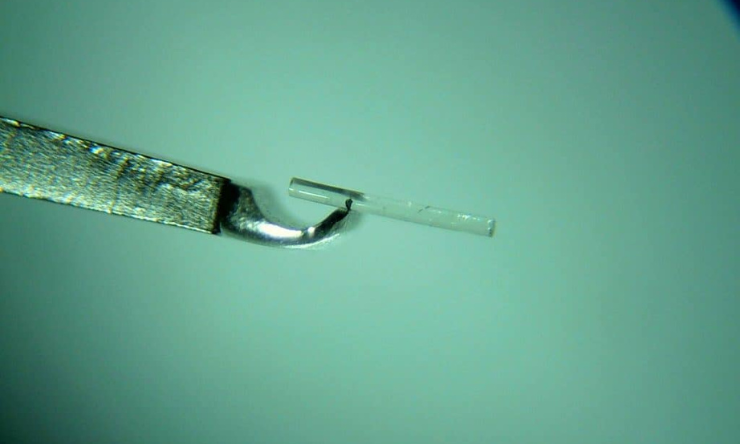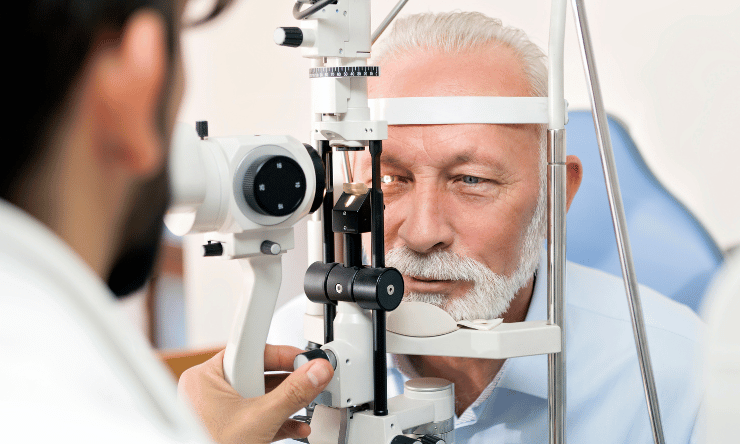Share
Glaucoma is a lifelong condition, you need to ensure you’re comfortable with everyone in your support network and feel confident about the decisions made regarding your eye health. It starts off with choosing the right eye care professionals for yourself, establishing trust in their expertise so that you understand and adhere to your ongoing treatment and management plans to save the health of your eyes and maintain your quality of lifestyle.

You may be a new glaucoma suspect seeking professional advice for the first time, or you may be a person who has had glaucoma for years but are now looking for a new ophthalmologist due to common reasons such as your current one retiring, or you may have re-located to a new state/territory and now need to find one close to your new home. The information below will aim to guide you through building your health care support team.
How to choose your ophthalmologist
Public versus Private: As glaucoma is a lifelong condition requiring ongoing follow up appointments, the cost associated with consultations, tests and treatment over the years can add up to large amounts. In Australia, Medicare does cover a significant amount in private eye clinics. In the public eye clinics, this cost can be fully covered.
Things to consider when looking into public eye care is the wait time involved in getting an initial appointment (which at times can be up to year, depending on individual cases), and also not being able to choose your specific ophthalmologist. If you are considering getting your glaucoma managed in the public hospital, a report on your behalf will need to be sent to your local eye clinic by your optometrist, GP or current ophthalmologist.
Location: Being diagnosed with or being monitored for glaucoma requires ongoing appointments with your ophthalmologist. Appointment frequency can range from monthly to bi-annually. Each patient and their glaucoma is different, time spent at the eye clinic can be hours at a time depending on the tests you are doing on the day. Due to the eye drops used to prepare your eyes for examination, you may not always able to drive back yourself and may need to rely on a friend or a family member for transport. Therefore, having your eye clinic located locally where possible will make the process a lot smoother.
You can find an ophthalmologist near you via Find a Health Professional here.
Word of Mouth Referrals: This can include the health care professional referring you (your GP, optometrist or your current ophthalmologist). Family or friends who have been under the care of the ophthalmologist.
The Glaucoma Australia Support Group is a safe and supportive online group with over 1000 members who can offer valuable feedback and recommendations on ophthalmologists near you or suitable for your case. Follow this link to our Glaucoma Australia Support Groups:
Glaucoma Specialist versus General Ophthalmologist: All Ophthalmologists are able to diagnose, treat and manage your glaucoma. A Glaucoma Specialist however, has extra years of training on glaucoma surgery and the more complicated glaucoma cases. If your General Ophthalmologist feels you will benefit from further intervention with a Glaucoma Specialist, they will refer you to them for further consultation.
Thinking of getting a second opinion?
It is ok to seek a second opinion. You may be wanting to explore a different treatment option your current ophthalmologist may not offer, or you may need the opinion of another expert for reassurance. Patients often consider a second opinion for various and sometimes personal reasons. It is important to have confidence in your treatment and management plans for the health of your eyes and also your emotional well-being. A referral is needed to seek a second opinion from an ophthalmologist you have not seen before. This can be obtained from your current ophthalmologist, your optometrist and your GP.
It always helps for your new ophthalmologist to have a copy of your past medical notes as future treatment and management plans can depend on how your glaucoma has progressed over the years or how you have responded to past treatments. For this reason, it is encouraged to have an open conversation with your current ophthalmologist about your reasons for seeking a second opinion. At times, your previous and new ophthalmologists can work together on your glaucoma management to ensure the best outcome for you. Your permission will be needed to release your medical notes from any previous eye clinic you have been to, please discuss this at the time of making your appointment.
Rapport and Trust: Taking into consideration the above points, finding the “best ophthalmologist” for yourself also depends on the rapport and trust you build during your appointments. It often helps to write out your questions before going into your appointments as it is very easy to forget especially once you have new information to process about your diagnosis and results. Staff at your eye clinic can often have busy and stressful days and can often run short of time to spend extra time with you to answer questions. We always encourage our patients to ask the questions as being well educated on your glaucoma will encourage adherence to ongoing treatment to save your sight.
Glaucoma Australia’s free support line 1800 500 880 is always available for all the extra questions and information you may have forgotten to ask during your appointments. There is also a helpful form you can print out to help you prepare for your appointments here.
Your healthcare support team
Apart from your ophthalmologist, it is very important to utilise other valuable health care professionals who can help you be in control of your glaucoma and your eye health.
Optometrist: Together with your ophthalmologist, your optometrist can help with ongoing monitoring and management of your glaucoma and general eye health. Apart from updating your glasses for optimal vision, your optometry clinic is well equipped with all the tests needed for glaucoma and for urgent appointments when your ophthalmologist is not available. Speak to your ophthalmologist about a shared care plan with your optometrist.
General Practitioner (GP): Your GP is able to prescribe you glaucoma eye drops for the times you may have forgotten to ask for one from your ophthalmologist. Please also consult your GP in case of any possible side effects from glaucoma medications.
Pharmacist: Your pharmacist can help answer questions regarding possible side effects with glaucoma medications. They are also available to help choose safe and appropriate options for hay fever medications, sinus congestion and dry eye therapy for those who have glaucoma.




